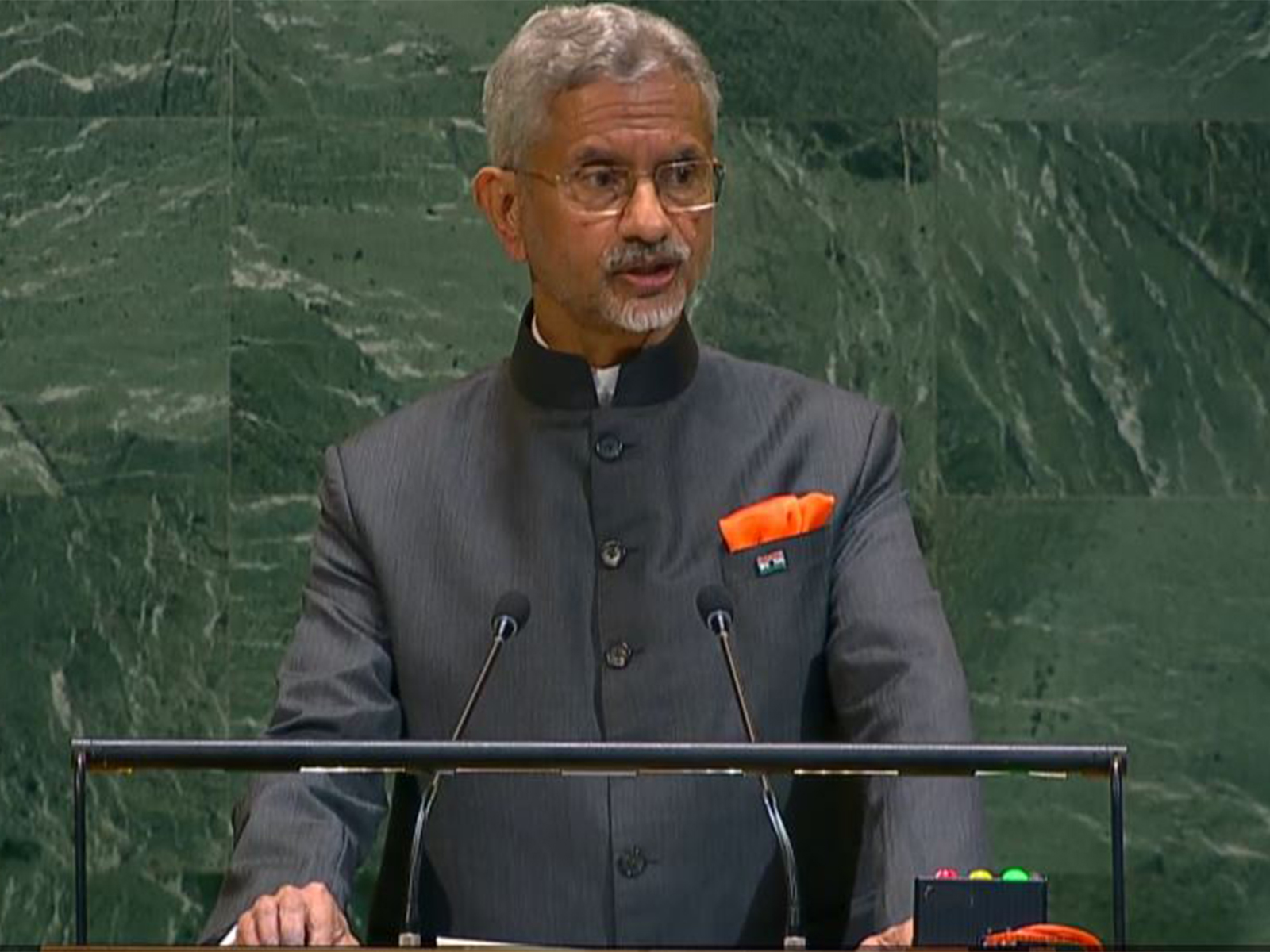New York [US], September 28 (ANI): External Affairs Minister S Jaishankar on Saturday emphasised the need for collective action against terrorism, pointing to India’s long-standing experience with the threat posed by its neighbour, which has been the “epicentre of global terrorism”.
Addressing the 80th United Nations General Assembly (UNGA), Jaishankar cited the recent murder of 26 innocent tourists in Pahalgam, Jammu and Kashmir, and stressed that nations must unequivocally condemn state-sponsored terrorism.
“India has confronted this challenge since its independence, having a neighbour that is an epicentre of global terrorism. For decades now, major international terrorist attacks are traced back to that one country. UN’s designated lists of terrorists are replete with its nationals. The most recent example of cross-border barbarism was the murder of innocent tourists in Pahalgam in April this year,” said Jaishankar.
He emphasised India’s commitment to defending its people against terrorism and bringing perpetrators to justice.
“India exercised its right to defend its people against terrorism and brought its organisers and perpetrators to justice,” said Jaishankar.
India launched precision missile strikes on nine terrorist targets across Pakistan and Pakistan-Occupied Kashmir (PoK) on May 7, 2025. Operation Sindoor targeted key terrorist installations, including Jaish-e-Mohammed’s stronghold in Bahawalpur and Lashkar-e-Taiba’s base in Muridke.
The objective of Operation Sindoor was to dismantle terrorist infrastructure and prevent future cross-border attacks. India exercised its right to defend its people against terrorism and brought the perpetrators to justice.
“While asserting our rights, we must also firmly face up to threats. Countering terrorism is a particular priority because it synthesises bigotry, violence, intolerance and fear,” said Jaishankar.
Jaishankar underscored the importance of deeper international cooperation to counter terrorism, including choking the financing of terrorism and sanctioning prominent terrorists.
“Because terrorism is a shared threat, it is essential that there is much deeper international cooperation. When nations openly declare terrorism a state policy, when terror hubs operate on an industrial scale, and when terrorists are publicly glorified, then such actions must be unequivocally condemned. The financing of terrorism must be choked even as prominent terrorists are sanctioned. Relentless pressure must be applied on the entire terrorism ecosystem. Those who condone nations that sponsor terror will find that it comes back to bite them,” said the EAM.
He highlighted the evolution of the UN since its founding, particularly with the advancement of decolonisation and globalisation.
The organisation’s role has expanded significantly, with a greater focus on development goals, climate change, trade, food, and health access.
“Forces unleashed by history since the founding of the UN propelled this body forward. As decolonisation advanced, the world began to return to its natural diversity. The membership of the United Nations quadrupled, and the organisation’s role and remit grew significantly. In the era of globalisation, its agenda has evolved even further. Development goals took centre stage even as climate change emerged as a shared priority. Trade acquired greater prominence while food and health access were recognised as essential to global well-being,” said Jaishankar.
Jaishankar’s speech comes amid a complex global landscape, with conflicts, climate crises, and economic volatility posing significant challenges.
“Namaskar from the people of Bharat. We are gathered here, eight decades since the founding of this unique body. The UN Charter calls on us not just to prevent war, but to build peace. Not just to defend rights, but to uphold the dignity of every human being,” added Jaishankar.
His address highlights India’s commitment to multilateralism and its role in promoting peace, development, and human rights. (ANI)
The article has been published through a syndicated feed. Except for the headline, the content has been published verbatim. Liability lies with original publisher.







